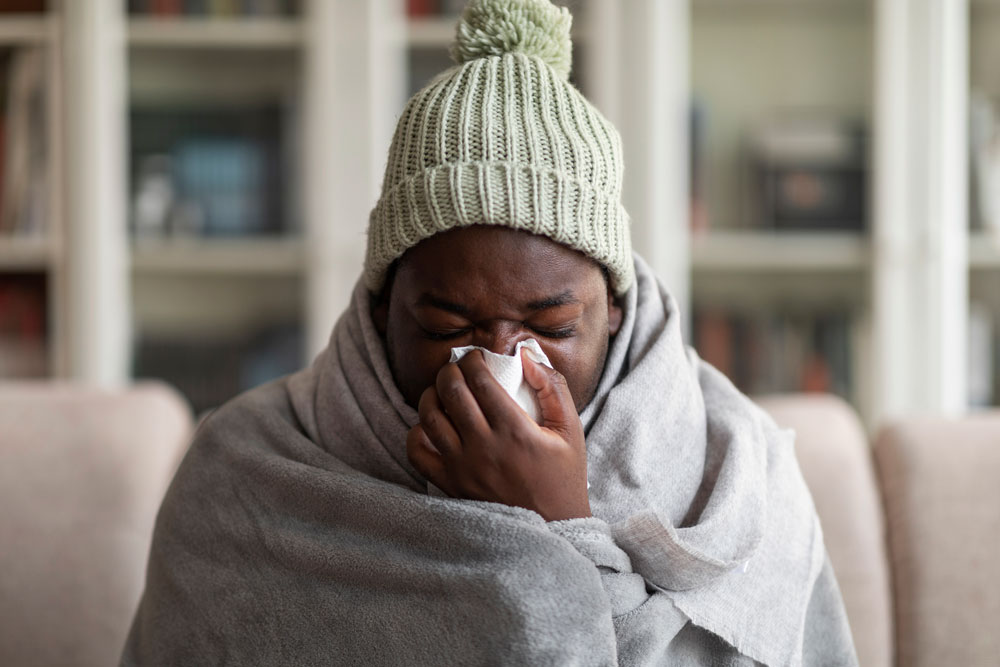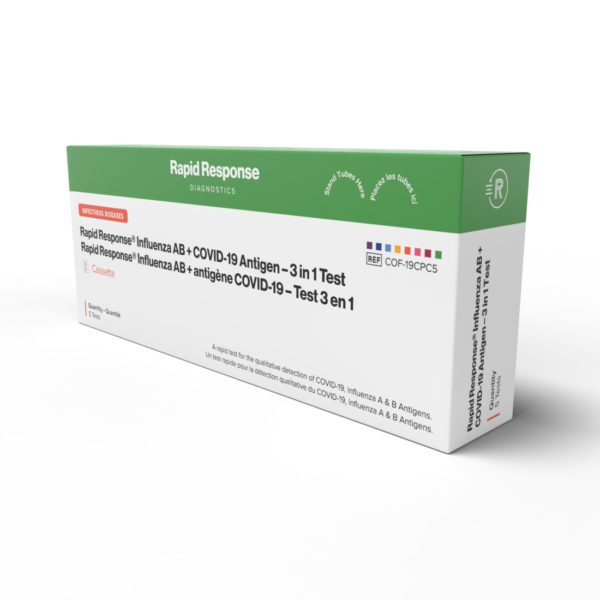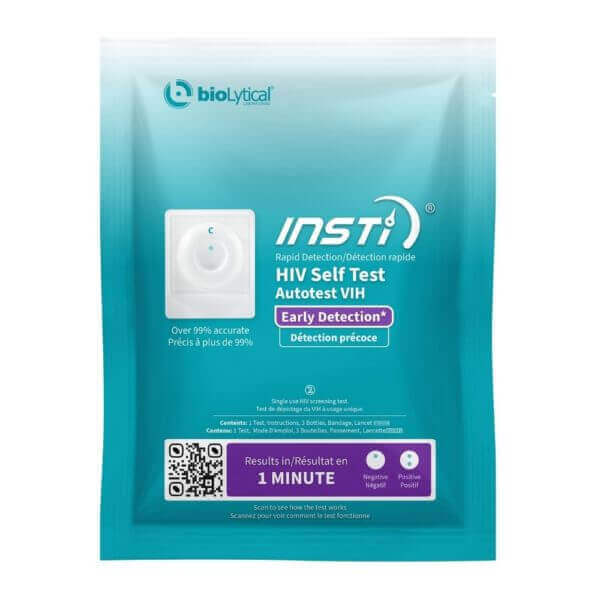The flu, scientifically known as influenza, is a highly contagious respiratory illness caused by influenza viruses. It affects millions of people each year and can lead to severe health complications, especially in vulnerable populations.
Here’s all you need to know about the flu, its symptoms, causes, treatment and prevention strategies.
What is the flu (influenza)?
Influenza, commonly known as the flu, is a contagious respiratory illness caused by influenza viruses. It can cause mild to severe illness and, at times, can lead to hospitalization or even death. Understanding how it impacts you and how it differs from a common cold is crucial for effective treatment and prevention.
What are the symptoms of the flu?
The symptoms of flu can vary from person to person but often include the following:
- A sudden onset of fever
- Cough
- Sore throat
- Runny or stuffy nose
- Nasal congestion
- Body aches
- Headache
- Chills
- Fatigue
Some people may also experience vomiting and diarrhoea, though this is more common in children than adults.
What are the main causes of the flu?
The flu is caused by influenza viruses that infect these body parts:
- Nose
- Throat
- Lungs
There are several strains of influenza viruses, including types A, B and C. Type A and B viruses are responsible for seasonal flu outbreaks, while type C viruses typically cause milder respiratory symptoms.
The virus spreads mainly by tiny droplets made when people with flu cough, sneeze or talk. These droplets can land in the mouths or noses of people who are nearby or possibly be inhaled into the lungs. Less often, you might get the flu by touching a surface or object that has the virus on it and then touching your mouth, nose or eyes.

Risk factors that may increase developing the flu
Certain groups are at higher risk of developing serious flu-related complications. Knowing these risk factors can help you take proactive measures to prevent the flu.
- Infants, young children and older adults are at higher risk of developing complications from the flu due to weaker immune systems or underlying health conditions.
- Chronic medical conditions. Those with chronic medical conditions such as asthma, diabetes or heart disease are more vulnerable to complications from the flu.
- Pregnant women experience changes in their immune system, heart and lungs that may increase their risk of severe illness from the flu.
- Weakened immune system. If you have a weakened immune system due to illness, medications or medical treatments, you’re susceptible to flu infections and may experience more severe symptoms.
- Occupational exposure. Healthcare workers, daycare providers, teachers and other people who have frequent contact with sick people are at higher risk of exposure to the flu virus.
- Living conditions. Crowded living conditions, such as dormitories, nursing homes or military barracks, can facilitate the spread of the flu virus among residents.
- Smoking damages the respiratory system and weakens the immune system, making smokers more susceptible to respiratory infections such as the flu.
- Traveling to regions with high flu activity or spending time in crowded areas such as airports and public transportation hubs can increase your risk of exposure to the virus.
- Seasonal changes. Changes in weather patterns, such as the onset of colder temperatures or fluctuations in humidity levels, may contribute to increased flu transmission rates during certain times of the year.
How is the flu diagnosed?
If you suspect having a flu, diagnosing it often involves a medical history review and a physical examination. In some cases, your healthcare provider may use various tests to detect influenza viruses. The most common test is the rapid influenza diagnostic test (RIDT), which can provide results in about 15 minutes.
What are the treatments for the flu?
Treating the flu focuses on alleviating symptoms, preventing complications and reducing the duration of illness. While most cases of the flu resolve on their own without medical intervention, you can do certain treatments can help manage symptoms and promote recovery.
Antiviral medications. Prescription medications inhibit the replication of influenza viruses in the body, shorten the duration of flu symptoms and reduce the risk of complications when taken within the first 48 hours of symptom onset. These medications include:
- Oseltamivir (Tamiflu)
- Zanamivir (Relenza)
- Peramivir (Rapivab)
Over-the-counter medications. Over-the-counter (OTC) medications can help relieve flu symptoms such as fever, headache, body aches and congestion. Common OTC medications include:
- Acetaminophen (Tylenol)
- Ibuprofen (Advil and Motrin)
- Decongestants
- Antihistamines
- Cough suppressants
Fluids and rest. Drinking plenty of fluids, such as water, herbal tea, broth or electrolyte-rich beverages, helps prevent dehydration and soothes a sore throat. Adequate rest is essential for supporting your immune system and allowing your body to recover from the flu.
Symptom management. Using a humidifier or taking steamy showers can help relieve nasal congestion and soothe irritated airways. Gargling with salt water or using throat lozenges can ease throat discomfort. Warm compresses or heating pads may help ease muscle aches and pains.
Isolation and hygiene practices. If you have the flu, stay home from work, school or other activities until you’re fever-free for at least 24 hours without the use of fever-reducing medications.
If you experience severe symptoms, such as difficulty breathing, chest pain, confusion or persistent high fever, contact your healthcare provider for prompt medical intervention.
Preventing the flu
To protect yourself against the flu, take proactive measures to reduce your risk of exposure to the influenza virus and strengthen your immune system to fend off infection. Here are several strategies to help minimize your chances of getting sick with the flu.
- Get an annual flu vaccination
- Wash your hands frequently with soap and water
- Cover your mouth and nose with a tissue or your elbow when coughing or sneezing
- Avoid close contact with people who are sick with the flu or other respiratory infections
- Clean and disinfect frequently touched surfaces frequently
- Maintain a healthy lifestyle
Key takeaway
Recognizing the signs and symptoms of flu early, knowing the risk factors and understanding the diagnosis and treatment options can lead to more effective management and prevention of the illness.






















































